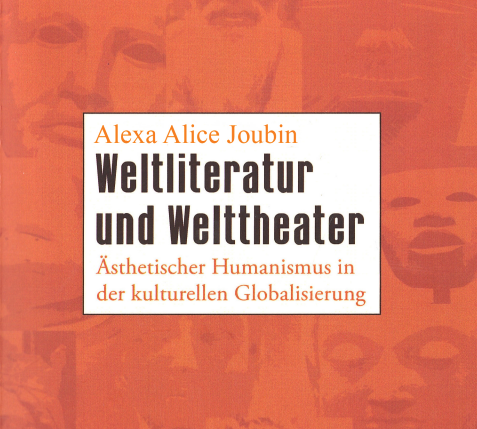
GW English professor Alexa Alice Joubin‘s new book on world literature and intercultural theater draws on theories of aesthetic humanism to explain the force of literature in globalization. The book is entitled Weltliteratur und Welttheater: Ästhetischer Humanismus in der kulturellen Globalisierung.
The aestheticization of politics in the twentieth century has structured political life as an art form of expression. As a secular investment in shared cultural values, aesthetic humanism has been deployed by artists to counter various practices of subjugation such as colonialism and cultural imperialism that have dominated the recent historical record of globalization. The phenomenon is notable in the translation and adaptation of Shakespearean comedies and sonnets, European reception of Asian performances of Shakespeare, French-Chinese playwright Gao Xingjian, and the satirical and humorous narratives of Chinese writer Lu Xun (whose “Madman’s Diary” was used by the literary theorist Fredric Jameson as an example of “national allegory”), Mo Yan, and other writers. This is the case because aesthetic humanism promotes multiple perspectives on the continuously unfolding revolution of modernity.
The book is part of Alexa’s effort to bridge far-flung loci of transnational scholarship, to reach out beyond the Anglo-American academy, and to examine the role of humanism in globalization.
Have you fulfilled the language requirement by choosing to study German?






